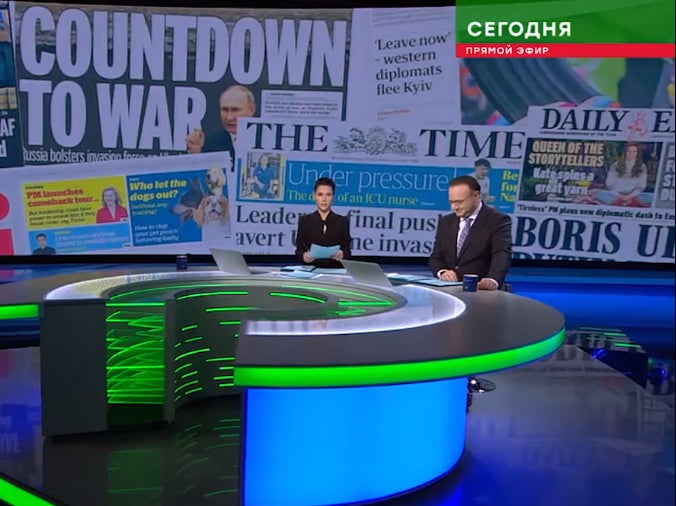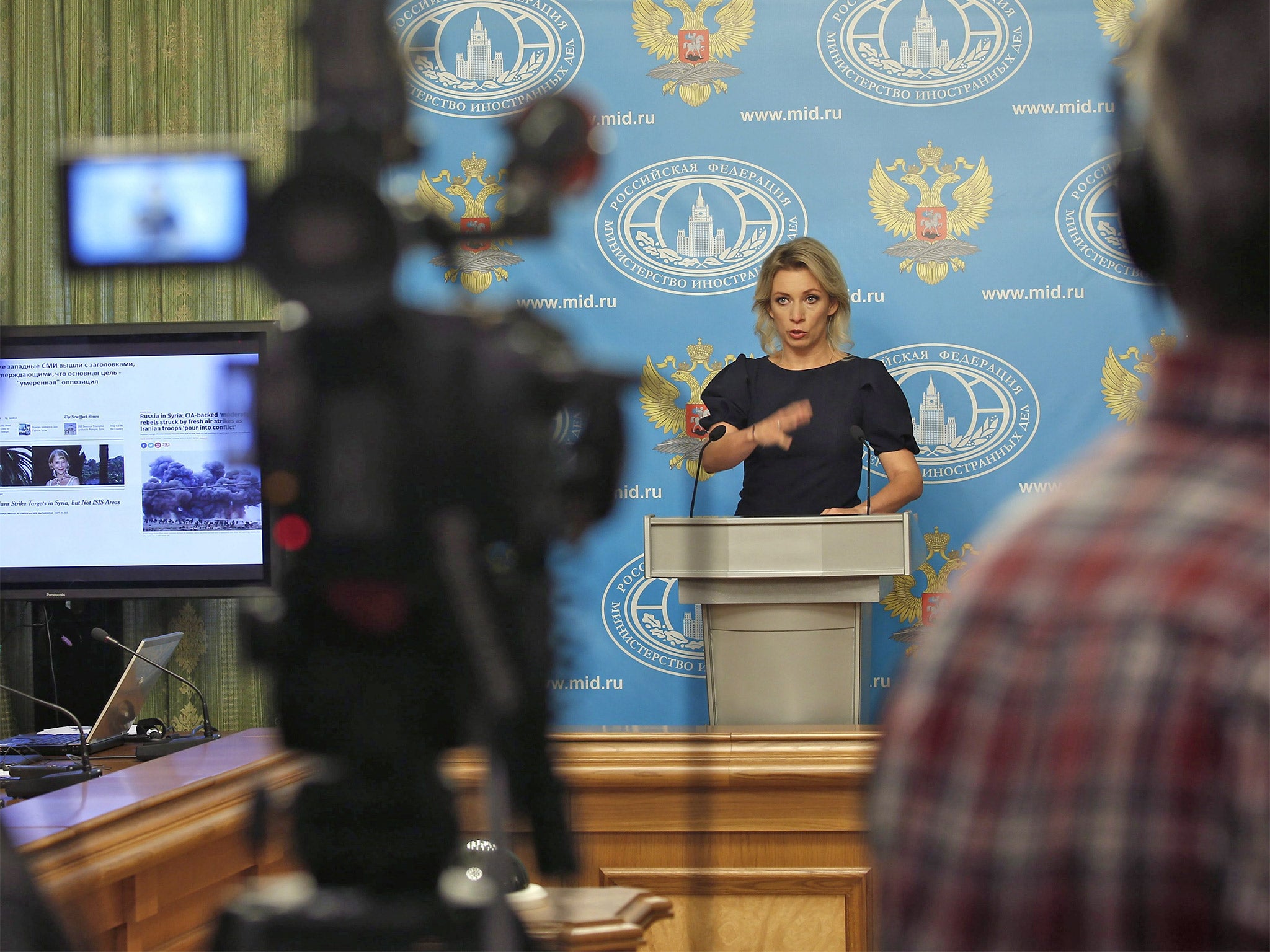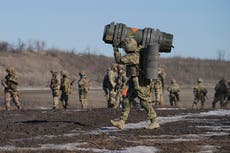Russia mocks Western media after reports of ‘D-Day for Ukraine’ prove to be wrong
One official scathingly asks Western news outlets for Russia’s ‘invasions schedule’ to help plan her holidays

Russian pundits and Kremlin officials have ridiculed Western media outlets after reports suggesting Russia would invade Ukraine on 16 February - yesterday - turned out to be wrong.
Prior to Wednesday, Western leaders including US President Joe Biden and British Prime Minister Boris Johnson had repeatedly warned that a Russian incursion of its neighbour could be imminent, as diplomatic efforts ramped up to ease tensions with Moscow.
Major US media outlets initially reported that 16 February would be the day of an invasion - citing American intelligence sources - before the British tabloids went one step further by declaring the exact time on Wednesday morning when Russia would strike.
As the day passed without incident, Russian commentators and officials did not hold back in their criticism
“What a sad celebration we have today,” said Olga Skabeeva, host of the state media talkshow 60 Minutes, while standing on a stage featuring the Daily Mirror and Daily Mail logos. The two papers had both run stories on Wednesday headlined ‘D-Day for Ukraine’.
“The day of no invasion of Ukraine, or perhaps as they say in Ukraine, the day when Putin once again hasn’t attacked,” Ms Skabeeva said.
A livestream by Reuters of Kiev’s Maidan Square - supposedly to broadcast a potential attack - on Wednesday merely showed traffic, daily life and a drone that flew past carrying a Ukrainian flag - provoking laughter among the guests on Ms Skabeeva’s show.
“The livestream of Putin’s invasion was run simultaneously on Britain’s Reuters agency and the American CNN but the invasion didn’t take place” she said on her show.
Russian news channel NTV also chimed in - saying “Russia did not come to the war” and featuring a media backdrop displaying the front pages of British newspapers with headlines “Leave Now” and “Countdown to War.”
The Russian foreign ministry spokesperson Maria Zakharova, who frequently mocks Western media, wrote a “request to the mass disinformation outlets of the USA and Britain – Bloomberg, the New York Times, the Sun etc – announce the schedule of our ‘invasions’ for the coming year. I’d like to plan my vacation”.
A day earlier, she wrote: “February 15, 2022 will go down in history as the day of the failure of western war propaganda. Humiliated and destroyed without firing a shot.”

Kremlin spokesman Dmitry Peskov also took the West’s forecasts lightly. Asked on Wednesday whether Russia’s administration operated differently overnight, he told reporters that everyone slept calmly and resumed work in the morning as usual.
“Western hysteria is still far from its culmination,” Mr Peskov said.
“We need to have patience, as the remission will not come quickly. But it is very important that all the same representatives of Western media, in this case the British, at least after a day each time noted that their prediction did not come true.”
Russia foreign minister Sergey Lavrov also joined in the criticism, saying on Wednesday that the West is “lacking basic upbringing” for trying to dictate or predict Russia’s plans.
On Tuesday, Russia’s envoy to EU, Vladimir Chizhov told German newspaper Die Welt there would be no attack on Wednesday.
“There will be no escalation in the coming week either, or in the week after that, or in the coming month,” he said. “Wars in Europe rarely start on a Wednesday.”
The widespread criticism comes as Nato is planning the deployment of new combat units to central and southeastern Europe, as it accused Russia of failing to pull troops back from the border with Ukraine.
The move – which could see four “battlegroups” totalling 4,000 troops in Romania, Bulgaria, Hungary and Slovakia – would represent the biggest shift in the alliance’s military posture since it set up operations in the Baltic states and Poland in the wake of Russia’s 2014 annexation of Crimea.
Moscow had indicated it was pulling troops back after joint military exercises with Belarus and was willing to continue diplomatic discussions - mainly concerning its demand for Ukrainian membership of Nato to be permanently ruled out.
But Nato’s secretary general, Jens Stoltenberg, said that far from withdrawing a force estimated to be 150,000 strong, Mr Putin had in fact moved his troops to more offensive positions.
Join our commenting forum
Join thought-provoking conversations, follow other Independent readers and see their replies
Comments


Bookmark popover
Removed from bookmarks